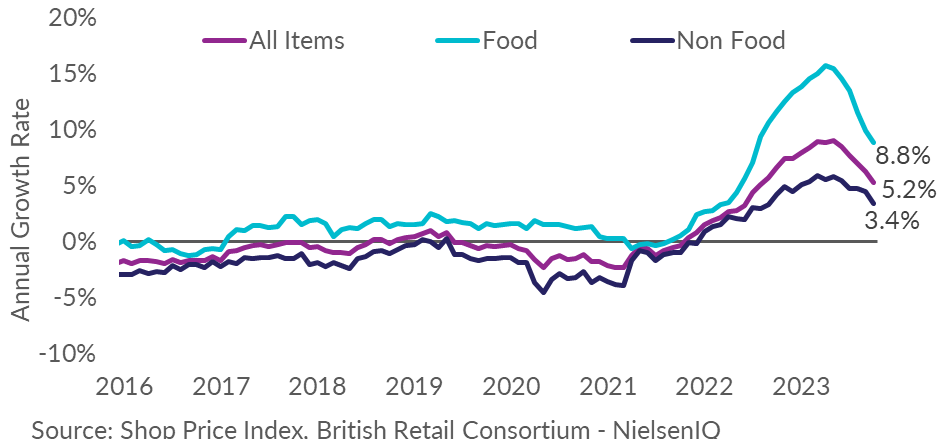UK shop price inflation at lowest in a year as government advised not to burden businesses
Prices were 5.2 per cent higher in October than a year earlier, data shows
Shop price inflation has eased for the fifth consecutive month to its lowest rate since last August, figures show.
Prices were 5.2 per cent higher in October than a year earlier, down from September’s 6.2 per cent, according to the British Retail Consortium (BRC)-Nielsen Shop Price Index.
Imported goods saw higher levels of inflation due to a weaker pound, still-high producer costs and emerging trade frictions, while prices for some domestically-produced food, such as fruit, were lower compared with last month.
To keep inflation heading in the right direction, it is vital that the government does not burden businesses with unnecessary new costs
Prices of children’s and baby clothing also fell as retailers continued to support families with the arrival of colder weather, the BRC said.
Food inflation also slowed, to 8.8 per cent from September’s 9.9 per cent – its sixth consecutive deceleration and lowest rate since last July – while fresh food inflation slowed even further to 8.3 per cent down from 9.6 per cent a month earlier.
Inflation on non-food items fell to 3.4 per cent from 4.4 per cent, its lowest rate since last September.
BRC chief executive Helen Dickinson said: “Retailers have been battling to keep prices down for their customers in the face of rising transport costs, high interest rates and other input costs.
“To keep inflation heading in the right direction, it is vital that the government does not burden businesses with unnecessary new costs.
“Without immediate action from the Chancellor, retailers have an additional £470m per year on their business rates bill, jeopardising the progress made. Ultimately, it’s consumers who would pay the price for the rising rates bill.”

Mike Watkins, head of retailer and business insight at NielsenIQ, said: “Inflation has helped the topline sales growth of many food retailers this year but, in reality, shoppers have been paying more and buying less.
“And the rest of the retail trade has seen less benefit due to the continued squeeze on discretionary spend.
“This time last year pressure was growing on household incomes as inflation was accelerating in fuel, energy, and food so, as inflation continues to decelerate, we now need an uptick in sentiment to help retail sales over the next eight weeks.”
Bookmark popover
Removed from bookmarks